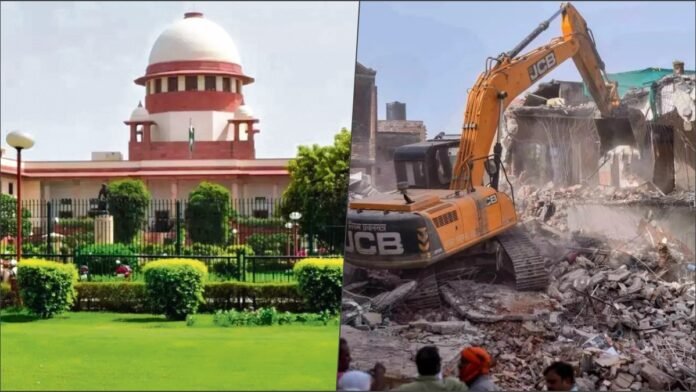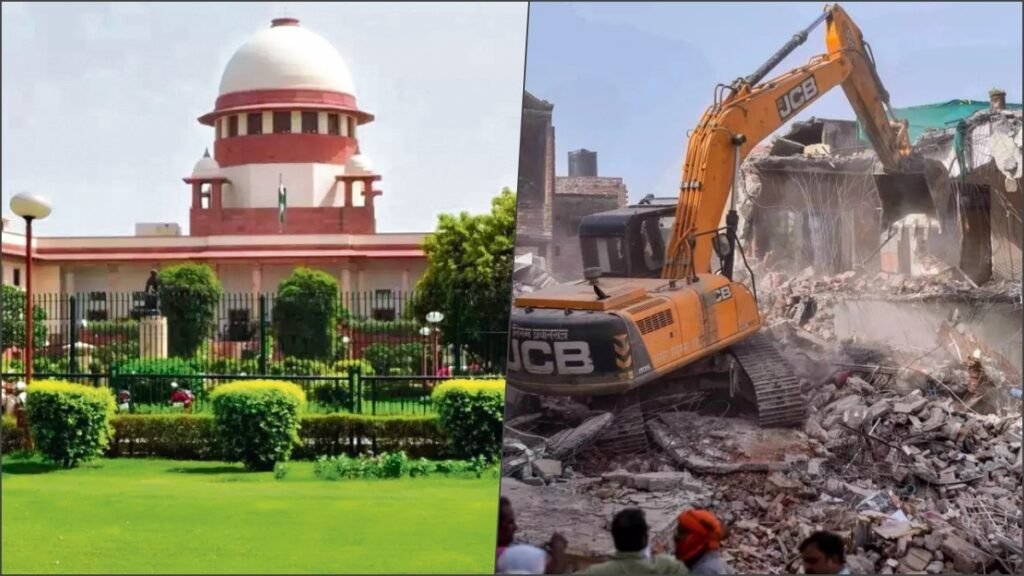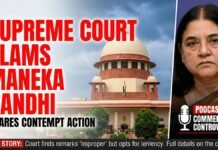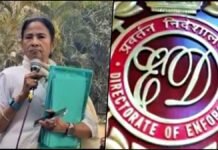
New Delhi: In a significant development amidst the rising trend of demolishing homes of individuals accused of crimes, the Supreme Court of India has sternly reprimanded the central government. On Monday, the apex court questioned the legality and ethics of demolishing houses merely because the residents are accused in criminal cases.
The Supreme Court’s intervention comes at a time when several state governments have been using bulldozers to demolish properties linked to individuals allegedly involved in criminal activities. This practice, often referred to as “bulldozer justice,” has sparked widespread controversy and legal challenges. The court’s primary concern revolves around the constitutional rights of individuals and the due process of law, questioning the rationale behind punitive demolitions without proper legal procedure.
Court’s Stand on Demolitions
A bench comprising Justice B.R. Gavai and Justice K.V. Vishwanathan underscored the importance of adhering to the law, stating, “How can someone’s house be demolished just because he is an accused? Even if he is guilty, this cannot be done without following the procedure prescribed by law.” This strong statement from the bench reflects the court’s determination to ensure that fundamental rights are not trampled upon under the guise of law enforcement.
Supreme Court to Draft Nationwide Guidelines
The court also announced its intent to draft comprehensive guidelines on the issue of demolitions, which would be applicable across the country. This move aims to prevent arbitrary actions by state authorities and ensure that demolitions are carried out only under the law. The petitioners in the case had raised concerns that homes were being demolished without notice, as a form of retaliatory action.
Government’s Defense and Affidavit
Solicitor General Tushar Mehta, representing the state of Uttar Pradesh, attempted to defend the government’s actions by referring to an affidavit filed earlier. The affidavit clarified that merely being accused of a crime could never justify the demolition of one’s immovable property. He emphasized that any demolition must be based on violations of relevant municipal laws or development authority regulations.
Despite this defense, the Supreme Court remained firm in its stance. The bench made it clear that while unauthorized constructions and encroachments on public roads, including temples, would not be protected, the demolition of properties must follow due process.
Petitioners’ Concerns and Supreme Court’s Assurance
Senior advocate Dushyant Dave, representing one of the petitioners, passionately argued against the widespread use of bulldozers for punitive purposes. He urged the court to ensure that “people across the country will not be given justice by bulldozers.” Echoing these concerns, Senior advocate C.U. Singh highlighted similar demolitions in other states, further underscoring the need for nationwide guidelines.

The Supreme Court, acknowledging these concerns, assured that guidelines would be formulated to prevent misuse of power by authorities and to protect citizens’ rights. The court invited suggestions from the parties involved to help shape these guidelines, which will be enforced on a national level.
As the Supreme Court moves forward with drafting these guidelines, this case marks a pivotal moment in the ongoing debate over the balance between law enforcement and the protection of individual rights in India. The court’s upcoming guidelines are expected to have far-reaching implications, ensuring that the rule of law prevails over arbitrary actions by the state.
















































